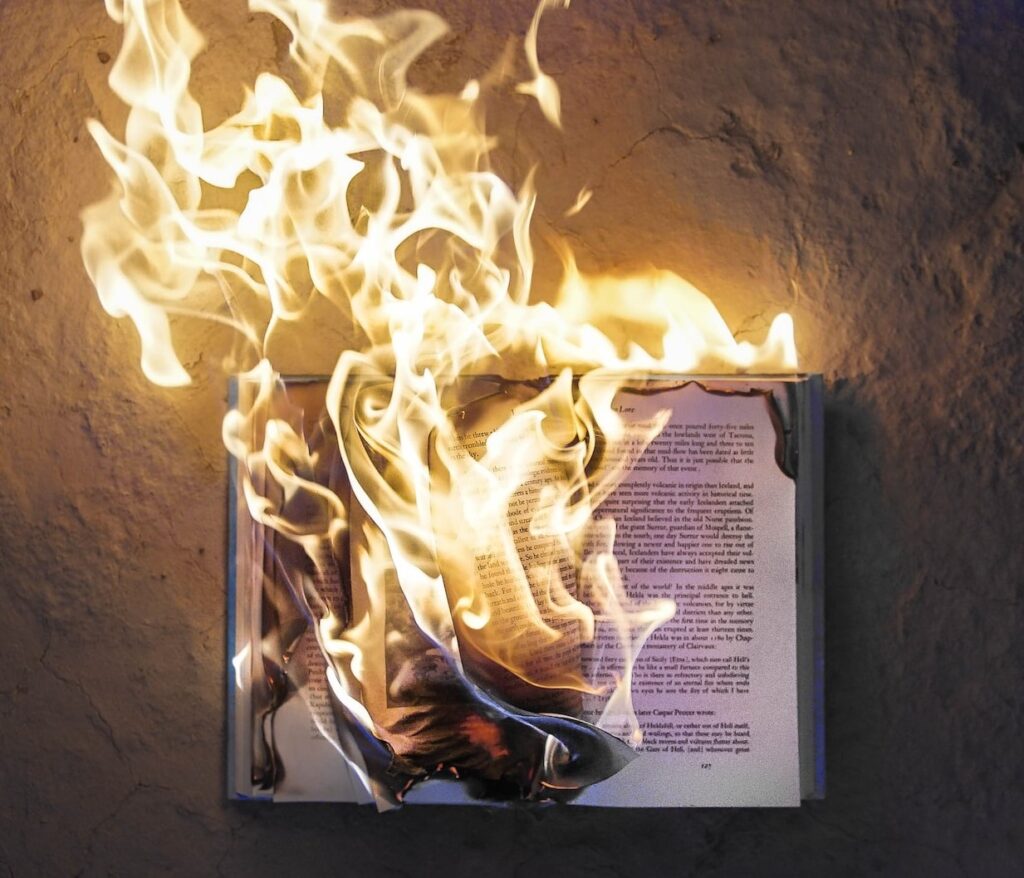Dwight D. Eisenhower? William Safire? Apocryphal?

Question for Quote Investigator: Historically, the censorship impulse has been enormously powerful and nearly universal. Interestingly, the nature of the repressed material has been highly variable. It has included sexual, ideological, religious, cultural, and military topics.
The opposition to censorship has also been forcefully expressed. Apparently, a U.S. President once said:
Don’t join the book burners … Don’t be afraid to go in your library and read every book.
Do you know who said this? Would you please help me to find a citation?
Reply from Quote Investigator: U.S. President Dwight Eisenhower delivered the commencement address at Dartmouth College in New Hampshire on June 14th, 1953. A transcript appeared in “The New York Times” the following day. Boldface added to excerpts by QI:1
Don’t join the book burners. Don’t think you are going to conceal faults by concealing evidence that they ever existed. Don’t be afraid to go in your library and read every book as long as any document does not offend our own ideas of decency. That should be the only censorship.
How will we defeat communism unless we know what it is? What it teaches—why does it have such an appeal for men? Why are so many people swearing allegiance to it? It’s almost a religion, albeit one of the nether regions.
Below are additional selected citations in chronological order.
In 1968 political commentator William Safire published “The New Language of Politics”. The entry discussing “Academic Freedom” mentioned the quotation. The term “q.v.” referred to a separate entry in the book about the term “bookburners”:2
Nationally, academic freedom became a subject of argument during the McCarthy-influenced 1950’s. There was pressure not only against leftists, liberals, and dissenters in general, but also against the presence of their books in publicly sponsored libraries. In 1953, President Dwight Eisenhower, speaking at Dartmouth, made his widely quoted response: “Don’t join the book burners [q.v]. Don’t think you are going to conceal faults by concealing evidence that they ever existed.”
In 1983 an article in an Oakdale, California newspaper described a display in a local library. The article contained the phrase “book banners” instead of “book burners”:3
Also included in the display is a copy of Dwight David Eisenhower’s statement on book banning: “Don’t join the book banners,” he said.
In 1993 “The Columbia Dictionary of Quotations” included the following entry:4
Don’t join the book burners. Don’t think you are going to conceal faults by concealing evidence that they ever existed.
DWIGHT D. EISENHOWER (1890–1969), U.S. general, Republican politician, president. Speech, 14 June 1953, Dartmouth College.
In conclusion, Dwight Eisenhower deserves credit for the remark he made during a speech at Dartmouth College in 1953. Occasionally, the quotation is altered to use the phrase “book banners” instead of “book burners”.
Image Notes: Illustration of a burning book from Freddy Kearney at Unsplash. The image has been cropped.
Acknowledgement: Great thanks to Sue Ferrara whose inquiry led QI to formulate this question and perform this exploration.
Update History: On May 10, 2024 the format of the bibliographical notes was updated. Also, the full article was placed on this website.
- 1953 June 15, New York Times, The Texts of Eisenhower Speeches at Dartmouth and Oyster Bay: Speech at Dartmouth, Quote Page 10, Column 5, New York. (ProQuest) ↩︎
- 1968, The New Language of Politics by William Safire, First Edition, Topic: Academic Freedom, Quote Page 4, Random House, New York. (Verified with scans) ↩︎
- 1983 September 14, Oakdale Leader, Some surprising titles show up in library display of banned books, Quote Page B1, Column 3, Oakdale, California. (Newspapers_com) ↩︎
- 1993, The Columbia Dictionary of Quotations, Edited by Robert Andrews, Topic: Censorship, Quote Page 126, Columbia University Press, New York. (Verified with scans) ↩︎